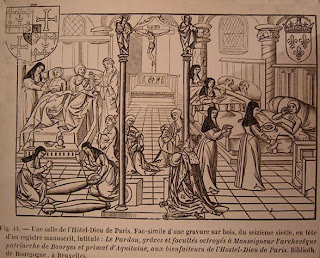One reason that I wrote recently about character, how we form it and why it matters, is because of the lack of it that I see all around me.
When we can cheat and lie “just a little bit” and still think highly of ourselves, when we show our kids that it’s okay to do little wrong things to get by, when it is more wrong to judge evil than to do evil, we are in trouble. For our society to function, we need people of character in leadership positions from teachers and managers to mayors and governors.
Why is this? Why do ordinary people care so little about acting in moral ways?
I think a lot of this dearth of character, of virtue, comes from the rejection of the idea of truth.
If truth is, at best, all relative, a matter of perspective, and at worst, a social construct, whatever we make it to be, then why should we work hard to develop a character that may or may not be valid to those around us?
If there is no truth that we can deliberate and discover together as a society (whatever that truth may be), we are left with “power and propaganda and grievance and anger and caucuses and anti-caucuses and special interest groups and victims and vengeance.” ~ Richard John Neuhaus
There is an assumption in much of society, in many of our universities especially, that we can’t keep society and relationships going if we talk about truth because truth brings conflict. Truth has gained a negative connotation, one that assumes that anything so divisive has no appropriate role in public life.
How did this happen? How did truth get hijacked and associated with the negative? How did truth become linked with religious totalitarianism and Osama bin Laden? How did it become shameful to declare a belief in truth, even simply the idea of truth, regardless of what that truth is?
Part of the answer, I’m afraid, is due to the Church. We have a history of wielding the truth as divisively as possible, of tearing down and even destroying rather than creating and building up. We have used truth as an excuse for starting wars and we have used truth as an excuse to look down on our neighbor.
Richard John Neuhaus says that it is now the Church’s task to learn how to assert truth in public “persuasively and winsomely and in a manner that does not violate but strengthens the bonds of civility”. He challenges that it is our duty to not just tolerate those with whom we disagree but to eagerly engage them in love.
How? How do we declare truth without being divisive and unpleasant, causing strife, conflict and wars?
By remembering grace.
By remembering that we can’t even live up to our own standards and yet we are loved.
If we despise anyone or feel superior to anyone, we are living by moral performance rather than grace. And living by moral performance is what brings divisiveness to the truth.
By the way we live, living a life of loving and caring for others, we can show truth and speak truth with no divisiveness at all.
This is what the early Christians did when they loved the poor, empowered women, and brought together the races and classes. This is how the early Church overran the Roman Empire when it wasn’t even trying to gain political power.
This. This is the truth we need.
Because this truth is
a God Who became weak, Who loved and died for the people Who opposed Him, forgiving them. ~ Tim Keller
Will you speak and live this kind of truth to your public? Our world desperately needs Him.






